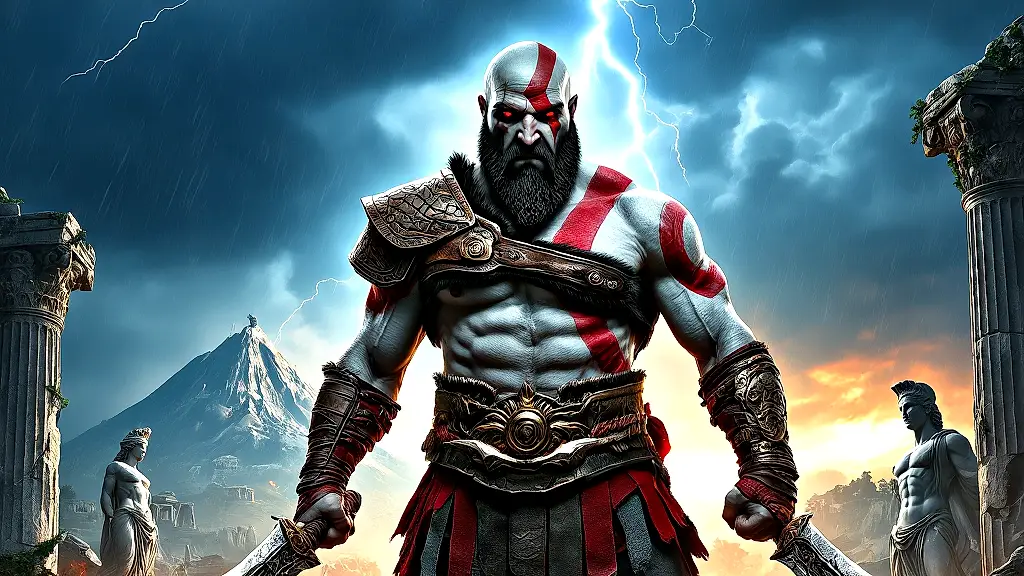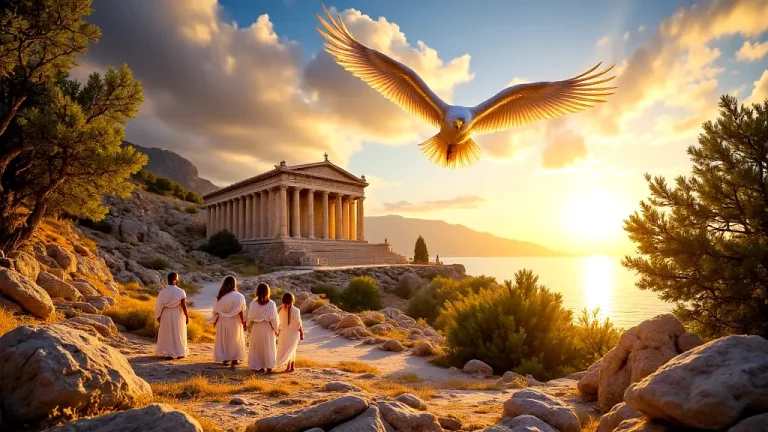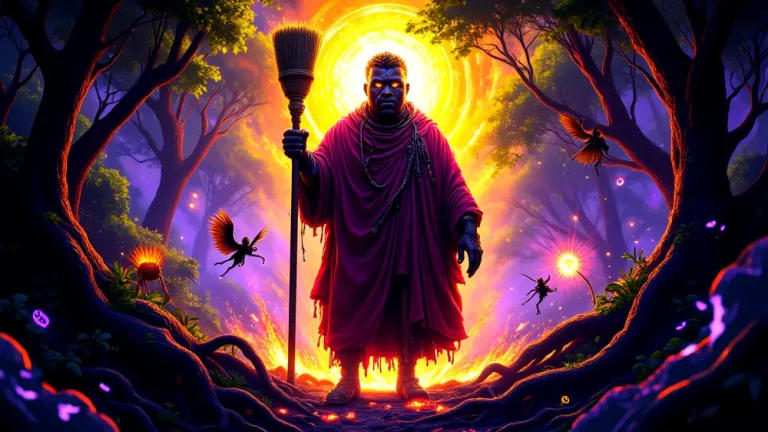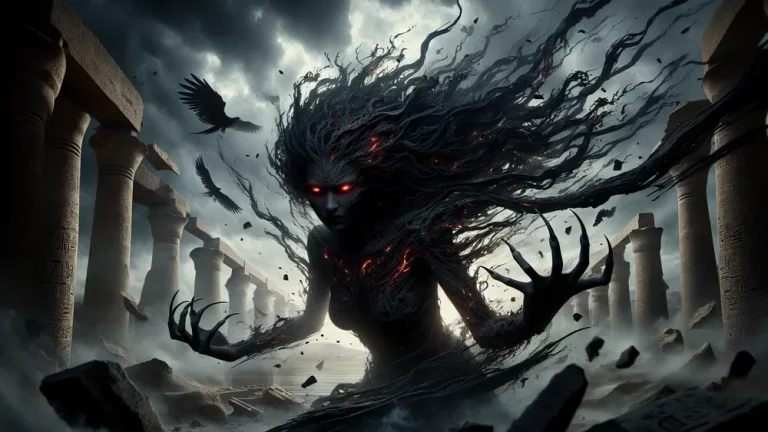Is Kratos Actually In Greek Mythology And Who Is He?
If you’ve played God of War, you know Kratos as the rage-fueled Spartan who overthrows gods. But did you know he comes from actual Greek mythology? The mythological Kratos, however, was a minor deity – nothing like his game version. He represented raw strength (kratos means “power” in Greek).
Key Points:
- Kratos was a real but minor god in Greek myths, not like the game version.
- He stood for pure strength, not war, and worked for Zeus.
- His parents were Titans Pallas and Styx, with siblings like Nike (Victory).
- Only one big myth has him: helping Zeus chain Prometheus as punishment.
- Unlike main gods, nobody worshipped him—he was more of a story symbol.
- The game made up his Spartan past and god-killing; myth Kratos just enforced Zeus’s rules.
- Greek myths saw strength as cold and unchanging, unlike Norse gods like Thor who had personalities.
This article breaks down his actual role in ancient stories, from his birth among Titans to the infamous moment he bound Prometheus. We’ll compare myth to game, using Hesiod’s Theogony and Aeschylus’ Prometheus Bound as sources. Whether you’re new to mythology or a God of War fan, this is like comparing a real person to a movie version. The names match, but the stories are very different. Want to know the real Kratos?
We’ll start right away.
Is Kratos Actually In Greek Mythology: Overview and Key Facts
| Key Question | Mythological Answer (Primary Sources) | Notes and Context |
|---|---|---|
| Did Kratos exist in Greek myths? | Yes, but as a minor deity in Hesiod’s Theogony (8th–7th BCE) and Aeschylus’ Prometheus Bound (5th BCE). | Later writers like Pausanias left him out. This points to regional differences. |
| What did he represent? | He was the literal form of kratos (κράτος), meaning “strength.” | Ares was the god of war, but Kratos stood for pure, unstoppable force. |
| Was he worshipped? | No proof of cults or temples. | Gods like Kratos weren’t usually worshipped – their power was symbolic, like Nemesis for revenge. |
| Major myths? | Only one confirmed myth: helping Zeus chain Prometheus (Aeschylus). | Later poets might have added more, but no surviving texts back this up. |
| Parentage? | Son of the Titans Pallas and Styx, with siblings Bia (Force), Zelos (Rivalry), and Nike (Victory). | Some versions say Styx alone bore him, showing how myths could change. |
| Video game vs. myth? | Same name and strength, but the game invented his Spartan past and god-killing. | It’s like Hamlet and The Lion King – inspired, not the same story. |
Kratos in Myths: Where He Came From
We’ve covered Kratos’ role in mythology. Now let’s look at where he came from, starting with his divine lineage.
Who Were Kratos’ Parents and Siblings?
According to Hesiod’s Theogony, Kratos was the son of two Titans: Pallas (god of warfare) and Styx (goddess of the underworld river). This made him part of an important divine family, with siblings who each represented powerful concepts. They served Zeus directly. While Kratos embodied strength, his siblings represented other powerful forces.
These were his siblings:
- Bia: Goddess who represented physical force
- Zelos: Spirit of competition and rivalry
- Nike: Goddess of victory, who later became worshipped separately
Later poets like Aeschylus agreed on this family line. What made Styx’s children special was that they weren’t just symbolic ideas – they actively worked for Zeus’s rule.
Kratos and his siblings, born to Titans Pallas and Styx, served Zeus by embodying strength, force, rivalry, and victory.
How Kratos Picked Zeus’ Side
During the Titanomachy – the great war between Zeus’s Olympians and the old Titan gods – Kratos’s mother Styx chose sides decisively. According to Hesiod, she was the first god to join Zeus, and brought her four children with her. Kratos didn’t choose this himself – it was his family’s decision. As a reward for being early supporters, Zeus gave Styx’s children permanent positions as his enforcers.
Kratos became the direct representative of Zeus’s absolute authority, while his siblings took on other important roles. This arrangement lasted throughout Zeus’s rule.
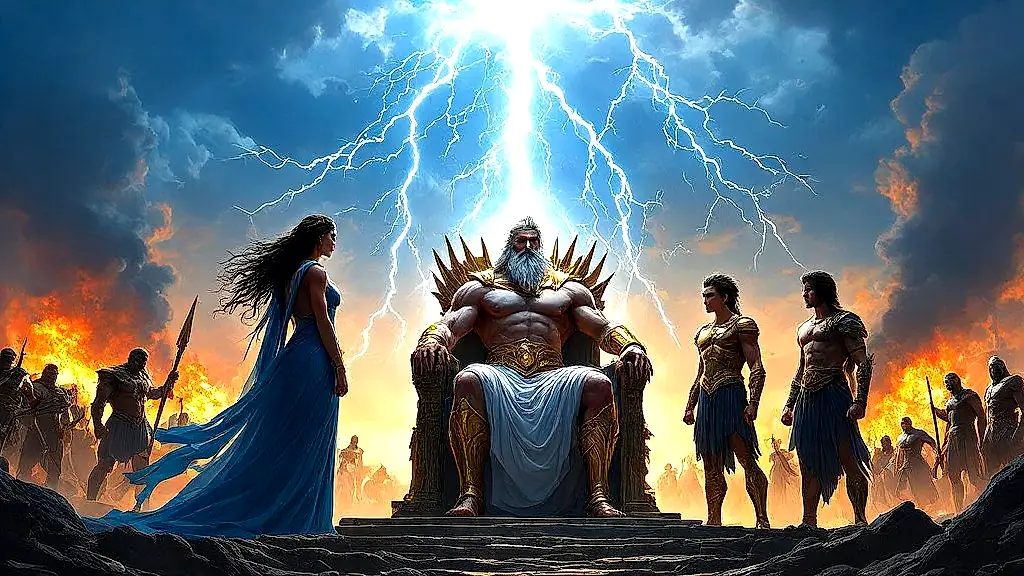
What Kratos Stood For
We’ve covered Kratos’ background. Now let’s discuss his role in the Greek gods’ system, starting with his fundamental nature as the representation of pure strength.
What Strength Meant to Kratos
In Greek mythology, Kratos didn’t just have strength – he personified it as an unstoppable divine force. While heroes like Heracles possessed strength, Kratos embodied the absolute power of command. He served as Zeus’s enforcer, directly representing absolute authority.
His strength enforced order through three key aspects:
- Absolute Obedience: The power to make others submit completely
- Institutional Might: Strength that upheld Zeus’s rule, not personal ability
- Unrelenting Force: Constant power rather than temporary effort
The word “kratos” itself means power, but specifically this merciless, impersonal kind. This becomes clear in Prometheus Bound, where Kratos doesn’t fight the Titan – he simply commands his punishment with finality.
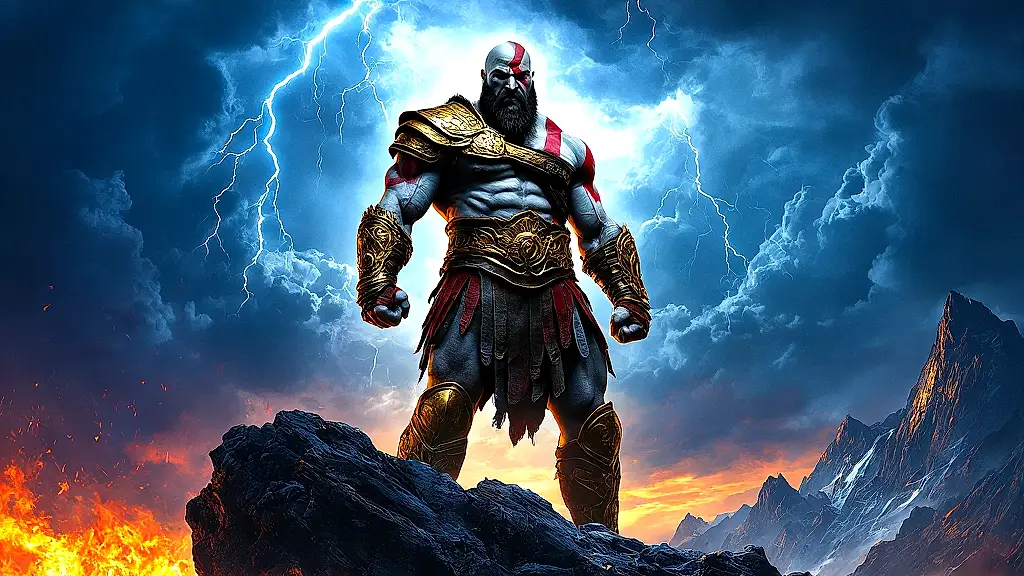
What Kratos Actually Did (And What He Didn’t)
Kratos appears in just one major myth: the binding of Prometheus from Aeschylus’ tragedy. Here, he and his sister Bia carried out Zeus’s punishment of the Titan. He functioned as divine enforcer, appearing only when absolute force was needed to uphold Zeus’s rule. His role was specific and fearsome – to execute Zeus’s harshest commands without hesitation. In contrast, Kratos notably avoided other mythological roles.
Unlike main Olympians with multiple stories and temples, he never participated in the Trojan War, joined heroic quests, or received human worship. As a personification (a living concept more than a traditional god), he only manifested when pure power needed physical form.
Scholars point out this makes him distinctive – even among similar concepts, few received such a clearly defined function in surviving myths.
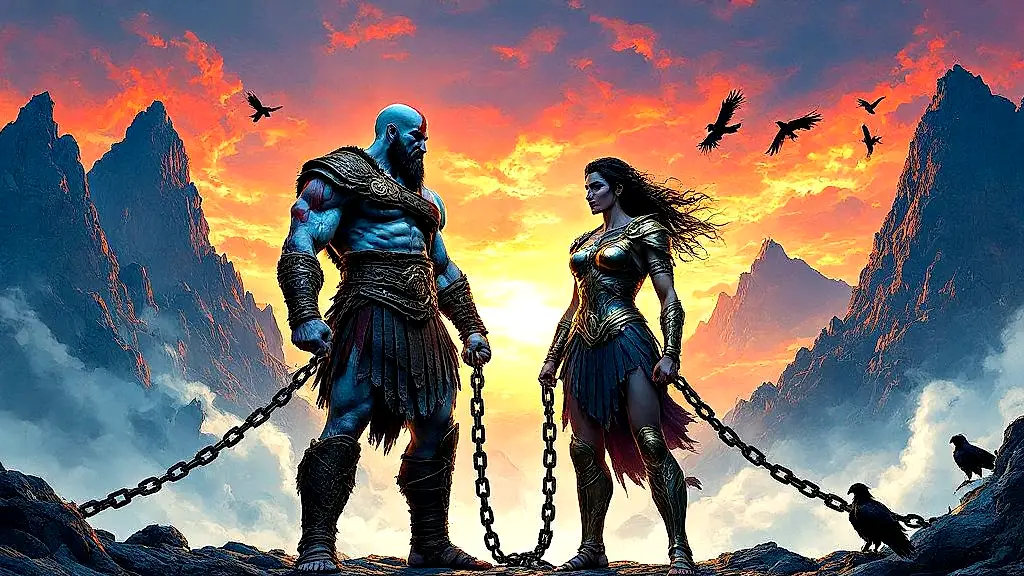
Kratos’ Biggest Myth: The Punishment of Prometheus
Kratos appears in few myths, but the Punishment of Prometheus clearly shows his role. In this story, he serves as Zeus’s enforcer, delivering the penalty after Prometheus stole fire.
Why Zeus Was Furious
Zeus’s anger toward Prometheus went beyond stolen fire. Three major betrayals threatened the cosmic order. First, at Mecone, Prometheus tricked Zeus by offering worthless bones which completely deceived him. Next, he took divine fire from Olympus and gave it to humans – a serious violation of divine law. Most significantly, this came from a Titan who had fought with Zeus in the Titanomachy.
This represented personal treachery and set a dangerous example that might encourage other rebellions.
Prometheus angered Zeus by tricking him with a fake sacrifice, stealing fire for humans, and betraying their alliance after the Titan war.
How Kratos and Bia Carried Out Zeus’ Orders
In Aeschylus’ tragedy, Kratos and Bia arrive to enforce Zeus’s punishment. They functioned as Zeus’s enforcers – one declaring punishment, the other executing it. Kratos, as the embodiment of power, spoke harshly to condemn Prometheus for helping mortals too much. Meanwhile, Bia silently fastened the adamantine chains with Hephaestus’ assistance. Together, they showed Zeus’s system: Kratos provided legal justification, while Bia ensured physical enforcement.
The contrast between them was extreme. Kratos verbally justified the punishment, telling Prometheus this was his reward for loving humans. Bia remained completely silent, her name meaning “force” reflecting her role. This division reveals Greek views on power: authority (Kratos) needed physical enforcement (Bia) to maintain order.
| Aspect | Kratos’ Role | Bia’s Role |
|---|---|---|
| Function | Declared punishment valid | Physically restrained Prometheus |
| Speech | Spoke Zeus’s judgment | Never spoke |
| Symbolism | Authority of law | Force behind laws |
| Interaction | Debated with Hephaestus | Acted immediately |
This scene shows how Greeks viewed power – not as ideas, but as actual divine beings carrying out Zeus’s will.
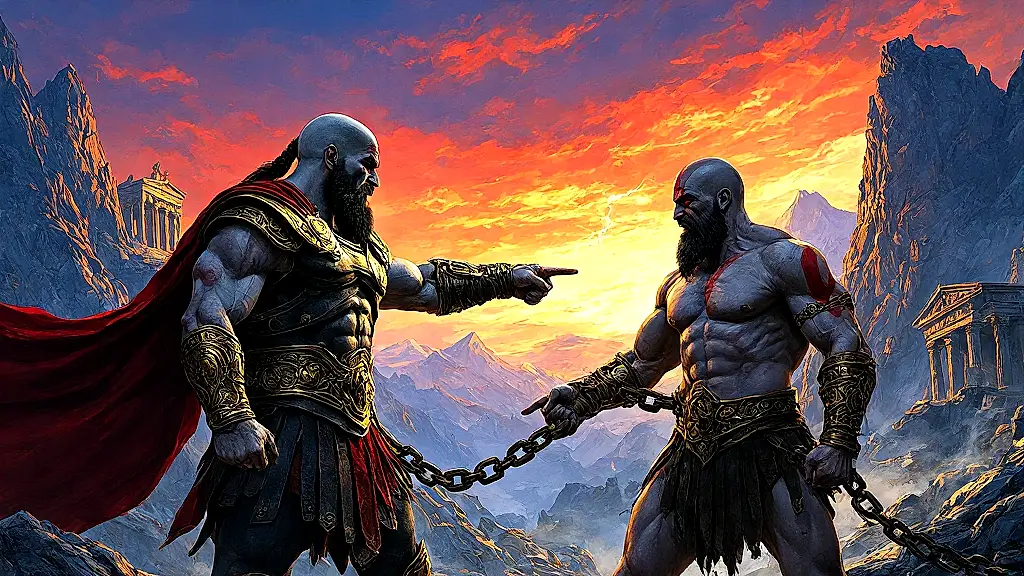
Their perfect coordination demonstrated Zeus’s justice system, where judgment and execution came together.
What This Story Tells Us
The Prometheus myth shows important things about Greek views on power. Kratos’ harsh actions prove their belief in complete obedience to authority. This divine order created by Zeus allowed no debate or challenge, with Kratos as its direct representative. The severe, eternal punishment warned others against rebellion. More importantly, the myth highlights the Greek belief in separate mortal realms. When Zeus punished Prometheus for helping humans, he wasn’t just being cruel.
He kept the important divisions between gods and humans. Kratos and Bia show that maintaining these divisions needed both authority’s justification and physical force. This concept appears often in Greek myths, proving their view that power requires both the right to command and the means to enforce it.
Why Kratos Wasn’t a Major God
Kratos played a key role enforcing Zeus’s will against Prometheus. Yet in Greek mythology, he stayed one of the less important gods. This seems surprising given his crucial position.
Why Nobody Worshipped Kratos
Unlike major Olympian gods with temples across Greece, Kratos was mainly a literary personification in stories. No shrines or votive offerings to Kratos have ever been found. There are several reasons for this:
- Abstract Domain: Greeks worshipped gods controlling concrete benefits like harvests or health, not abstract ideas like strength
- Lack of Personality: Major gods had detailed myths, while Kratos served as a divine official
- No Beneficent Role: People prayed to helpful gods, not those symbolizing absolute power
- Literary Origin: He appears mostly in Aeschylus’ plays, not religious texts
In contrast, consider Ares who also represented violent power. Ares had cult sites because war required divine favor. But raw strength – Kratos’ domain – was seen differently, as just an impersonal force.
Kratos vs. Norse Strength Gods
Kratos and Norse strength deities like Thor show very different views of divine power. Kratos was simply a symbol of pure strength, while Thor was a loud, ale-loving god who often helped humans. This shows how Greek gods represented concepts, while Norse gods had human-like personalities. Looking at their stories makes this clearer. Kratos only appeared for specific cosmic functions like chaining Prometheus.
Thor had countless adventures where he fought giants, wrestled with old age, and even dressed as a bride to get his hammer back. Norse gods needed strength to protect everyone from chaos, but Kratos’ power just enforced Zeus’ absolute authority. In contrast to Thor’s widespread worship, Kratos remained mainly a character in Greek plays.
The Norse needed their strength god, while the Greeks only needed theirs for particular stories.
Greek gods stood for ideas, while Norse gods acted more like people with their own personalities and adventures.
FAQs
1. Is the God of War video game Kratos based on real mythology?
The God of War video game Kratos is loosely inspired by real mythology, borrowing only his name and the concept of strength while inventing his backstory.
2. What was Kratos the god of in Greek myths?
In Greek myths, Kratos was the god of raw strength and power, embodying unyielding force rather than war.
3. Did Kratos appear in myths beyond Prometheus?
Kratos appearing in myths beyond Prometheus is not documented in any surviving ancient sources.
4. Why is Kratos absent from Roman mythology?
Kratos is absent from Roman mythology because while the Romans adopted him as “Potestas,” they erased his individual myths and role.

